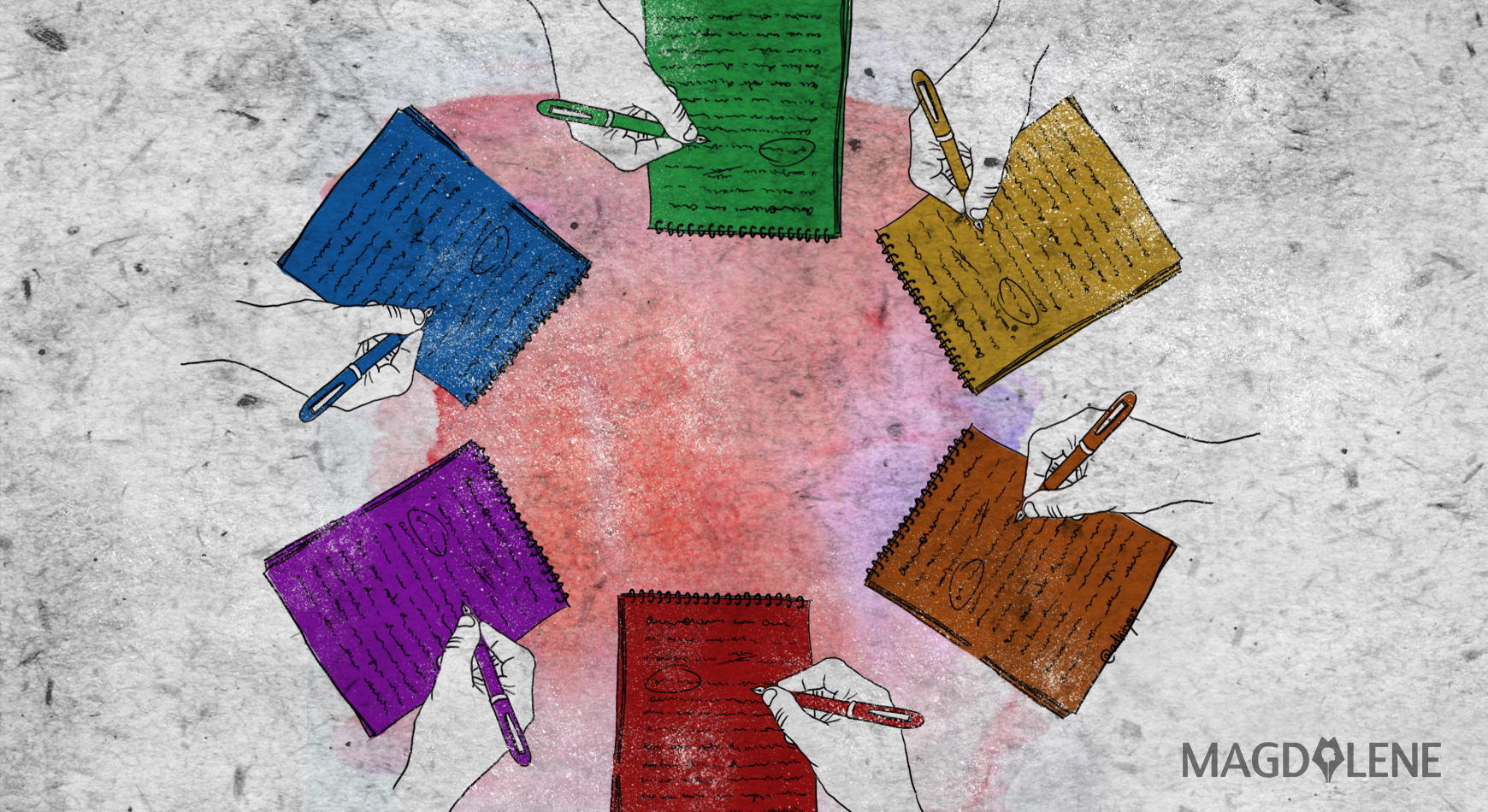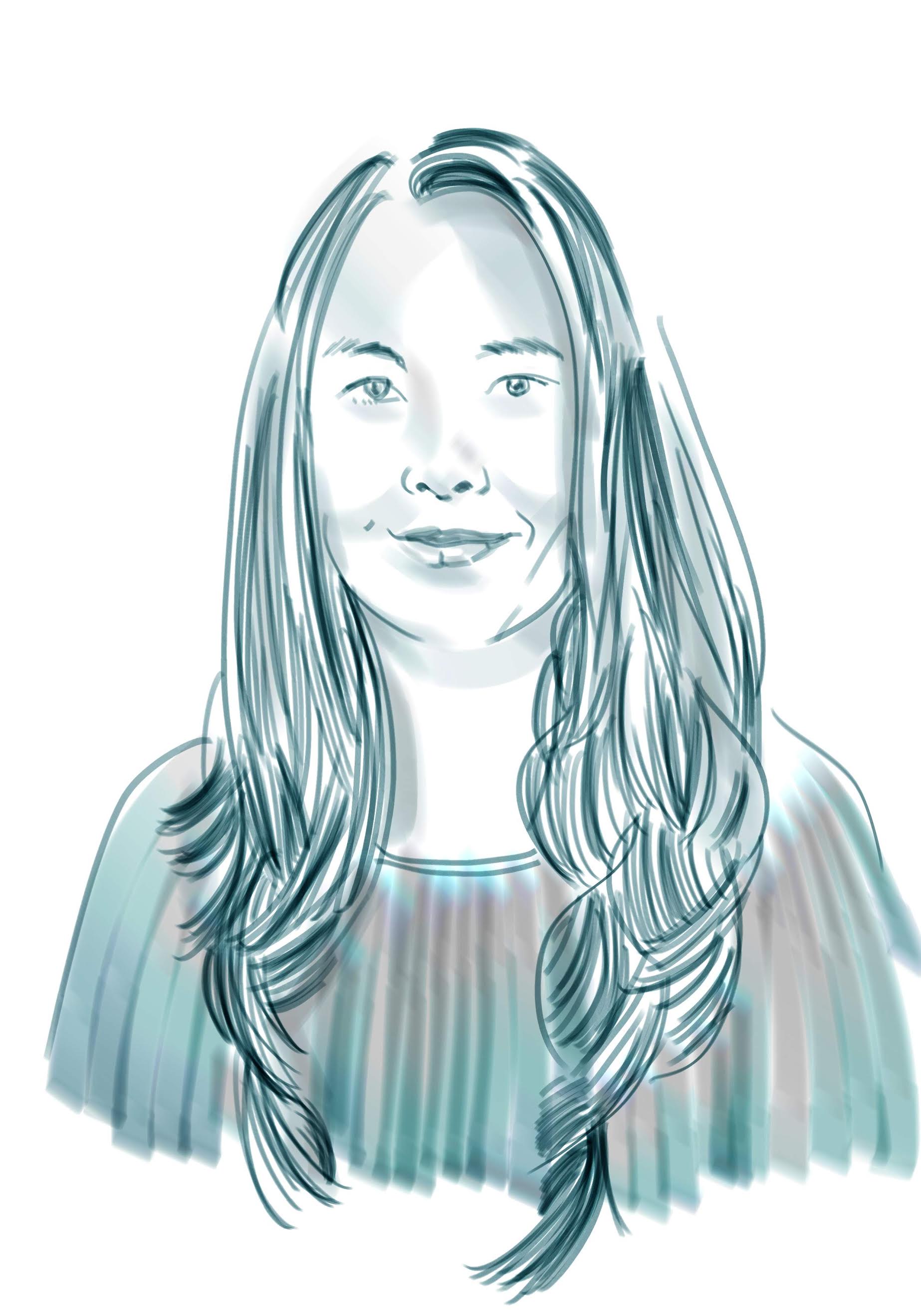In Indonesia’s increasingly oppressive social climate, putting our stories in writing can be a critical and empowering act. This encapsulates the spirit of the Writers’ Series 2018, the annual mini conference of The Jakarta Post Writing Center on May 5 at the Upper Room in Central Jakarta.
From the importance of storytelling and capturing the voice of a changing nation to the role of storytelling in the digital era, various aspects of creative and professional writing were discussed in frank, unmoderated discussions by authors and professionals in their respective fields during the one-day free event attended by nearly 1,000 people.
Themed “The Story of Us”, this year’s Writers’ Series has more than double the speakers and participants from last year, featuring around 30 Indonesian and international speakers that include journalists, novelists, poets, as well as non-fiction, content writers and public relations professionals. The dialogues were interspersed with poetry and prose reading performances and short presentations called “Fever Pitch”.
“Even though this year's Series is a lot more ambitious than last year's, it also feels more intimate and personal for a variety of reasons – one of them being the theme of the event: The Story of Us,” Writing Center’s Managing Director Maggie Tiojakin told Magdalene.
“We chose this theme because we feel that for the last couple of years, everyone's gotten so wrapped up in the story of others, or of otherness. We keep drawing lines and boundaries, both seen and unseen, and it's as if we're so busy shouting the words: 'Stay there. Don't come here!' that we forget about the things that brought us together in the first place. We forget that we must have each other's back if we are to progress as a society. We forget that what unites us is far more important than what draws us apart – that we are more than the sum of our experiences,” she added.

The Writing Center’s Founder and former Editor-in-Chief of The Jakarta Post Endy Bayuni, the Writing Program Director at Yale-NUS in Singapore, Robin Hemley, and public relations executive Eugene Laksono, discussed the evolution of storytelling during the “What’s Up Story?” panel.
“There would be something missing if people only rely on the headlines,” Endy said, referring to the challenge of journalism in the digital era.
Hemley responded: “It's important to write the news effectively. We have to tell stories, not just news.”
On another panel, the Post’s Managing Editor M. Taufiqurrahman, author Pallavi Aiyar, and British Council Indonesia’s Country Director, Paul Smith discussed the role of collective story in addressing the many issues facing the nation.
Aiyar brought up the fact that an ideal narrative for a nation involves differing views and thoughts, thus it is always an object of contestation.
“I think when we tell the stories in journalism it is very important to give space to that complexity. Find a way to giving acceptance to that complexity and understanding plurality,” she said.
In one of the panels called “Designing Women”, Magdalene’s Editor-in-Chief Devi Asmarani, author Feby Indirani and Creative Writing Director at Sun Yat Sen University Dai Fan, discussed how being a woman in a patriarchal world affects and informs their writing.
“As a woman, I always struggle to adjust to society’s expectation of me. People keep telling us how to talk, how to laugh, how to sit – I wonder whether I should always follow these expectations,” said Feby.
“Is it supposed to be this hard to be a woman? Am I always going to be judged by men? This kind of questions influence how I write,” said Feby, whose writing often tackles sensitive and taboo issues.
Echoing her remark, Dai Fan noted how most young and single Chinese women fear going home to their families because of the pressure to marry.
“It makes being with the family uncomfortable,” she said.
But she continued that being a writer allows her to accept differing perspective. Also, the willingness to understand where someone comes from often makes it easier to get the message across to them than merely through confrontation.
Poet Lawrence Ypil read his poems on diaspora, nostalgia, and memories of a childhood home set in Cebu, the Philippines.
In her Fever Pitch presentation entitled “Writing as an Act of Defiance”, Devi presented her case against the increasing acts of persecution in Indonesia, urging people to keep on writing their stories and the stories of people around them fearlessly.
“Writers and artists have always known this: that creativity is an act of defiance. Whether you write a Facebook post, or a Twitter thread; whether you publish an essay on your personal blog, or an op-ed on Jakarta Post, writing is a way to tell the world that your story matters, that everyone matters. The narratives do not belong only to a select group of people who have the privilege to be ‘the majority’,” she said.
Also speaking and/or performing at the event were Singaporean poet Joshua Ip and writer fellows of the Writers Immersion and Cultural Exchange (WrICE), The Jakarta Post Digital Managing Editor Asmara Wreksono, Chief Content Officer of Zetta Media Aulia Halimatussadiah, Senior User Experience Writer of Go-Jek Edwin Mohammad, Hong Kong novelist Xu Xi, poet Debra Yatim, writer Danny Yatim, as well as food activist Dicky Senda.
Said Maggie: "We were extremely blown away by the number of people who showed up at this year's Series and participated throughout the events. Each discussion generated an important conversation about the necessity for us – global citizens – to craft a new narrative about our shared future. The performances, both reading and presentation, were incredible. They gave us an important insight about each of the reader and presenter's creative process and what it means to step up and raise one's voice.”
The Writer’s Series continued the next day on May 6 with some of the writers offering writing workshops at The Jakarta Post Writing Center in Palmerah, West Jakarta.
Find out about the lack of frank discussion on reproductive health in an increasingly conservative society and follow @bunnnicula on Twitter.









Comments